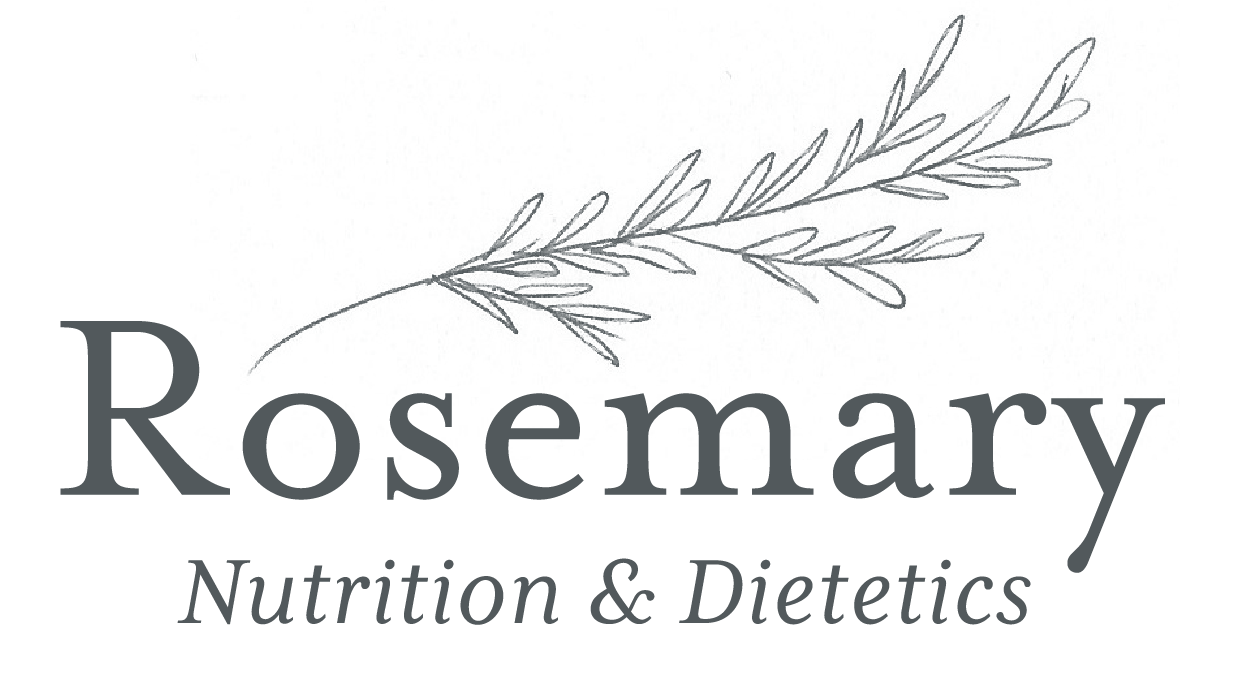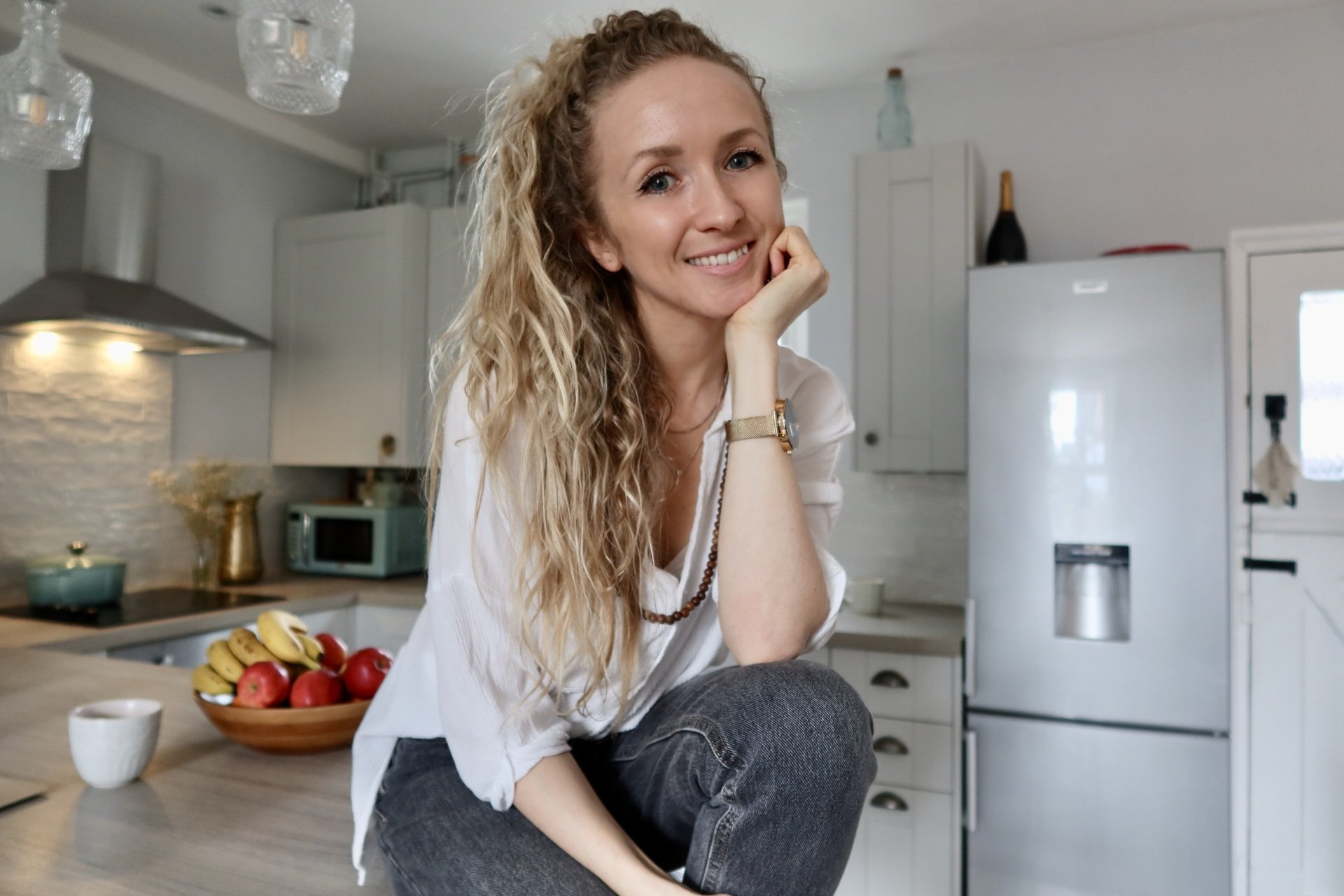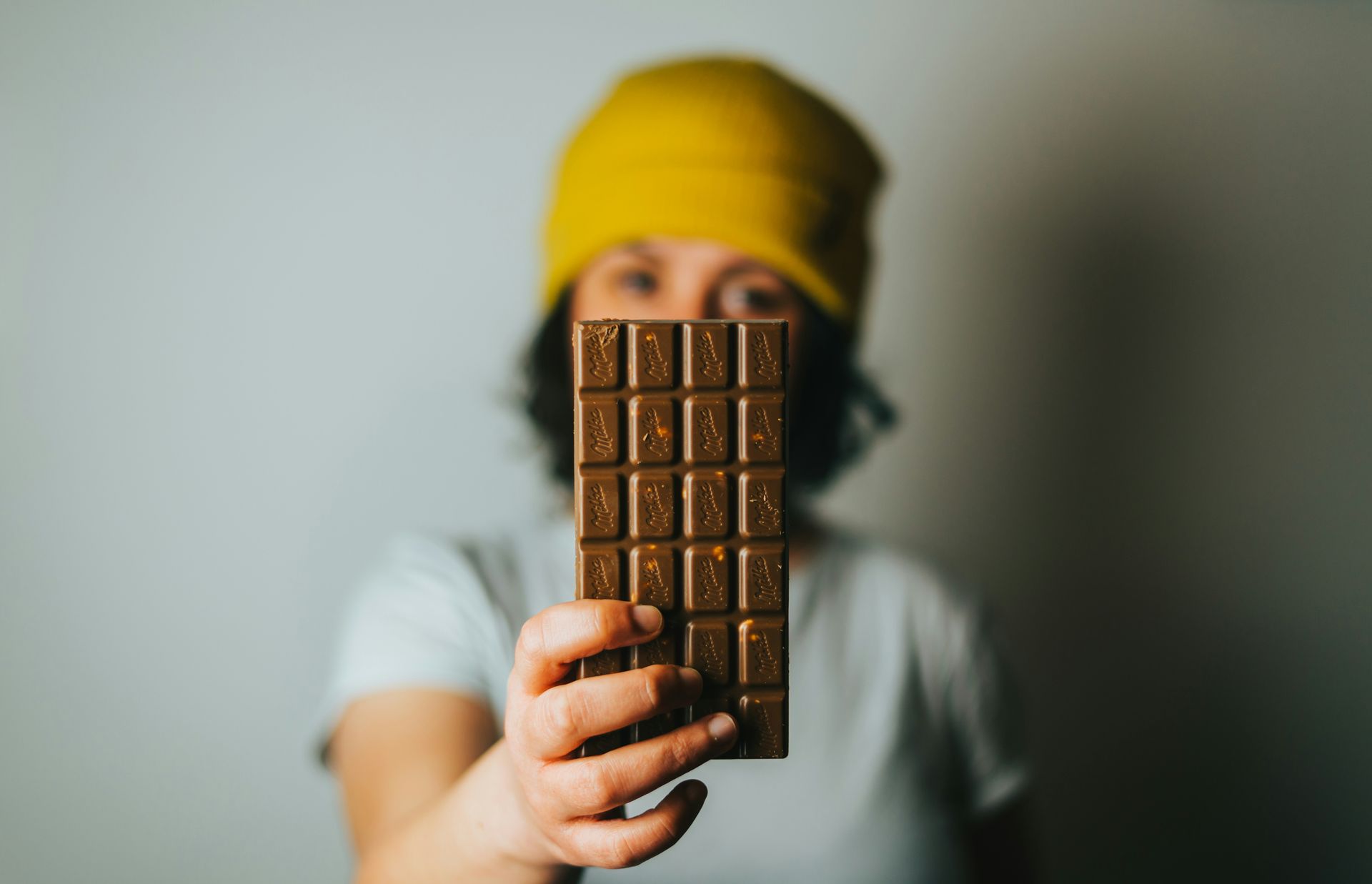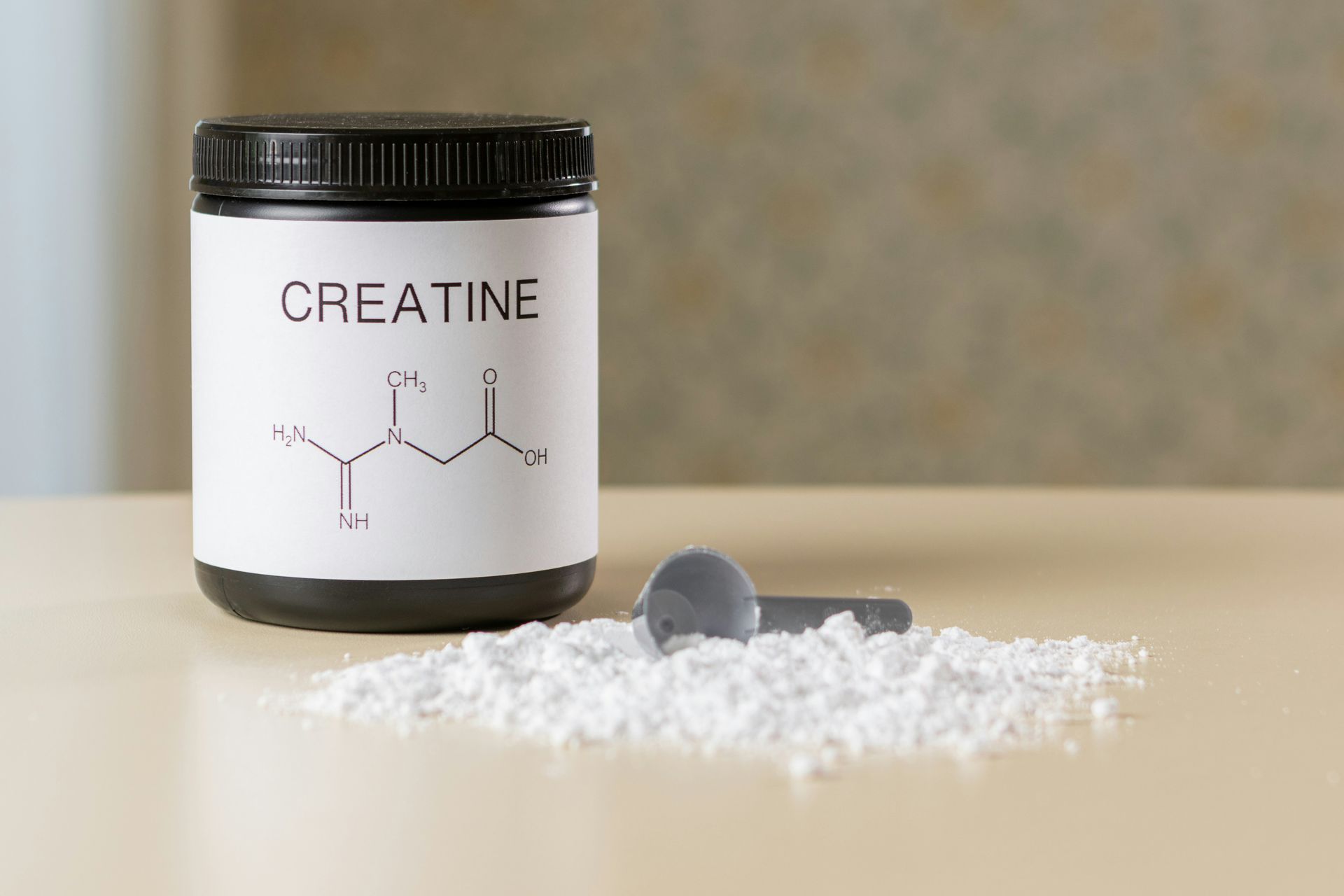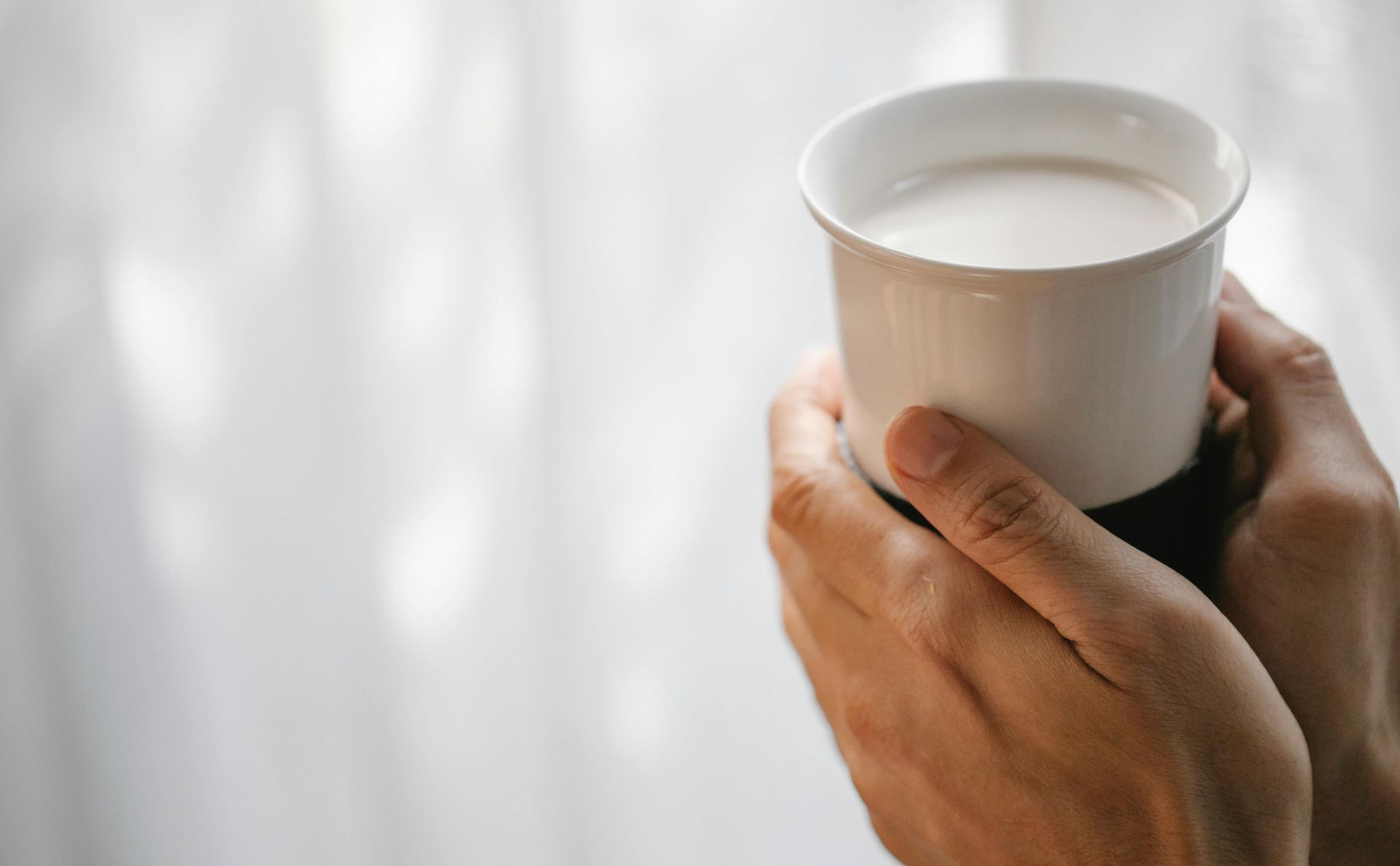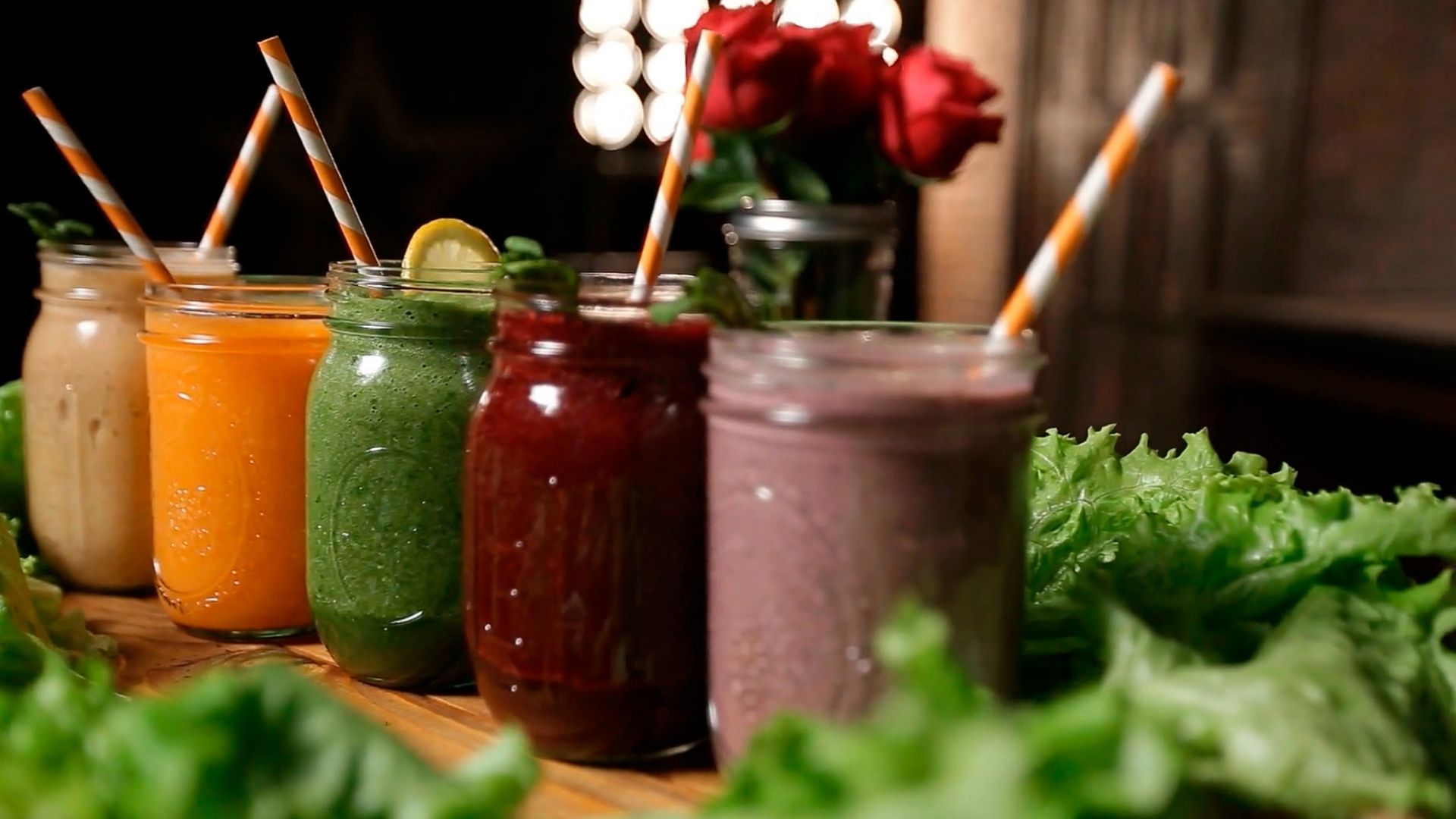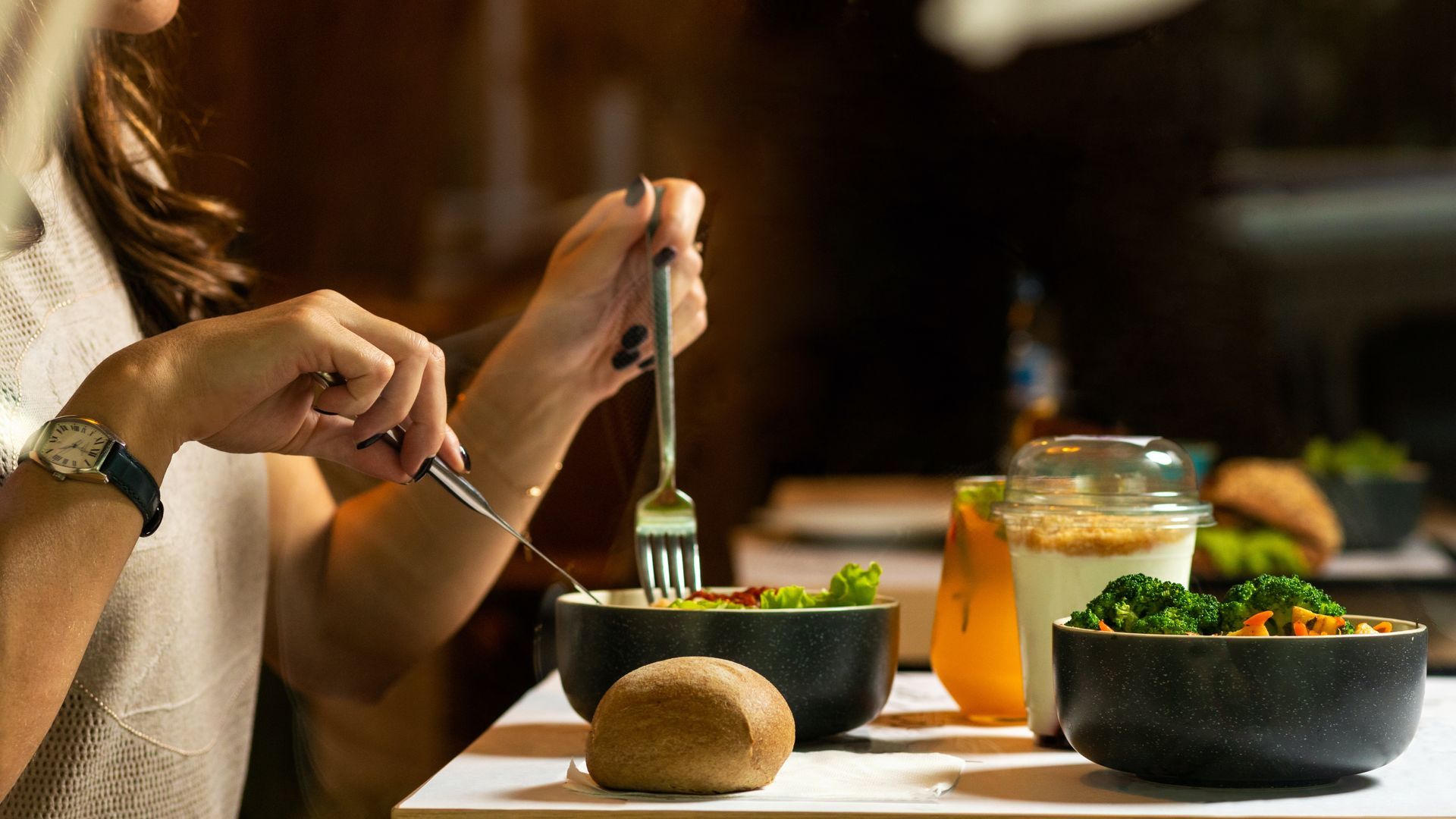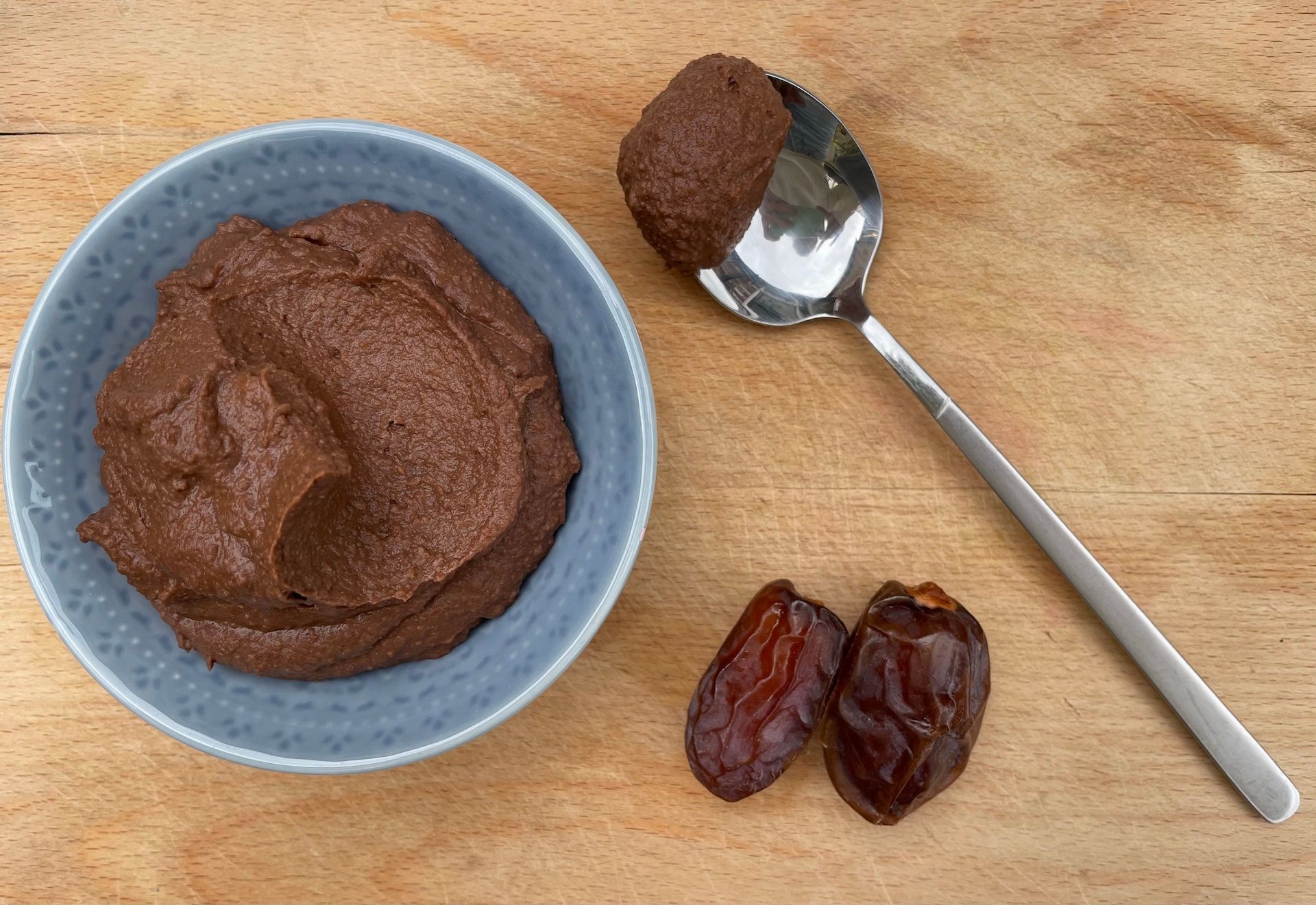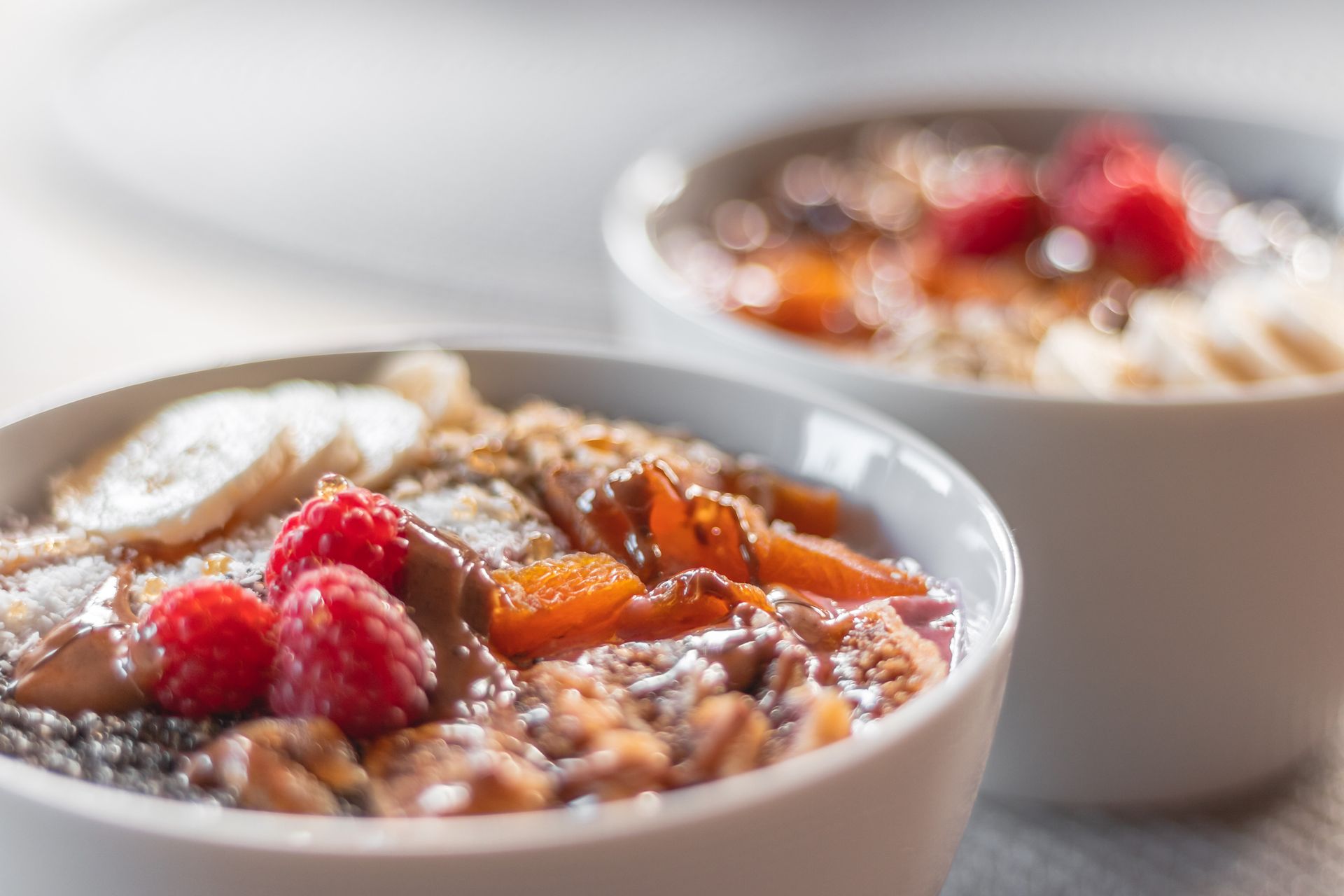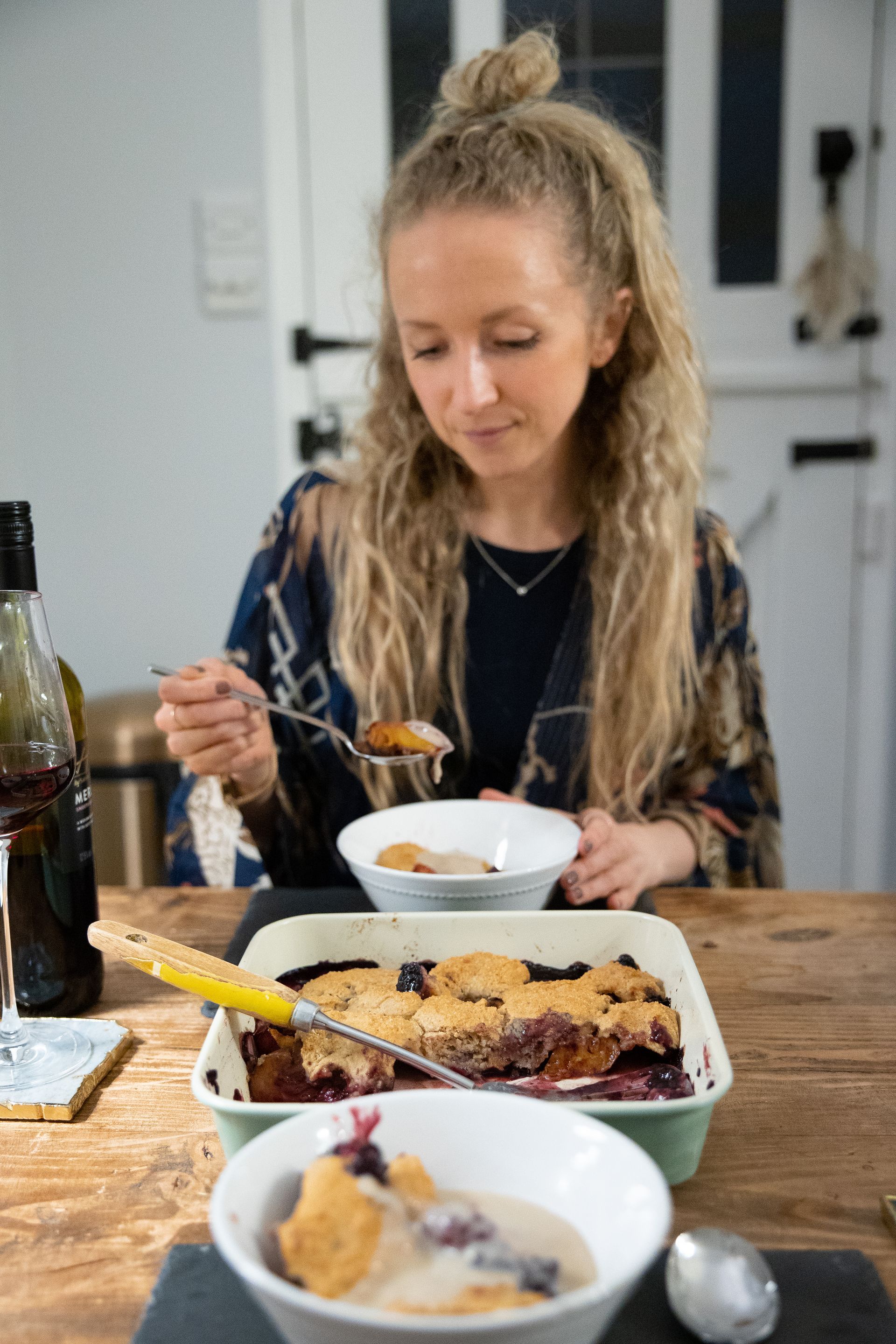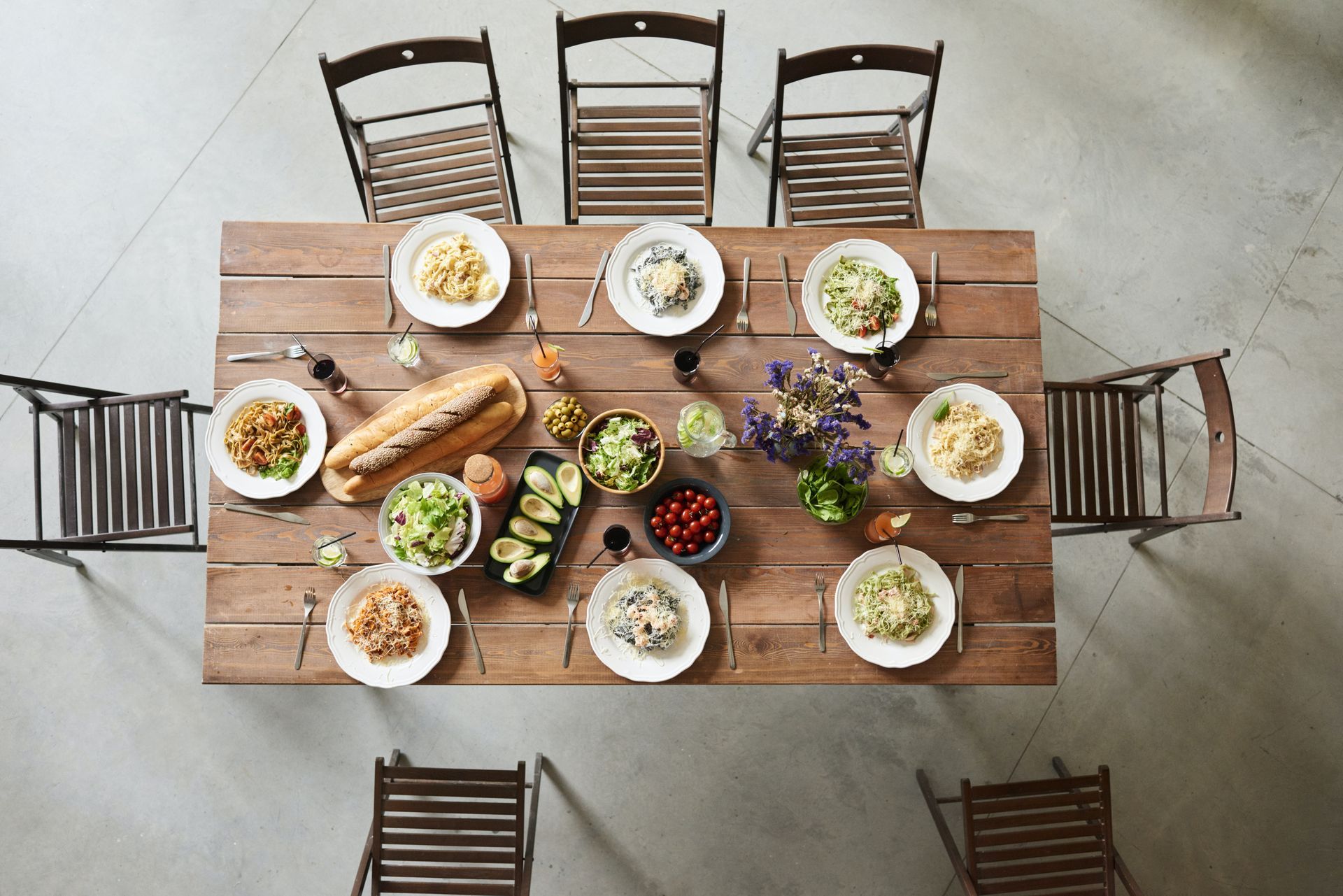Say Hello
Join our newsletter
Join our newsletter
Healthy Fats for Vegans
Fat has been a controversial component of food for a long time. Does fat make you fat? Will too much fat cause a heart attack? Even within the community of people eating a plant-based or vegan diet, there are differing opinions on dietary fat. So let’s break it down.
What is fat?
Along with protein and carbohydrates, fat is one of our three ‘macronutrients’ that make up the bulk of our food and energy intake. Fats, also known as ‘lipids’, are made up from three fatty acids molecules joined together with a glycerol molecule, which we call a triglyceride. Fat contains more energy per gram (9 kcal) than protein or carbohydrates (4 kcal), meaning that they are a good source of energy in our diet.
Why do we need fat?
Despite the controversy, certain dietary fats play a crucial role in a healthy, functioning human body.
- Firstly, fat supports the absorption of other nutrients in our food including vitamins A, D, E and K; these are known as ‘fat-soluble’ vitamins. Adding some fat to your meal, for example a drizzle of olive oil or a sprinkling of seeds over a salad, will help you get more nutrition from your meal.
- Secondly, fat is required for skin health as it makes up part of its structure, as well as creating a natural oil barrier to maintain skin hydration.
- Thirdly, certain types of fat are vital for brain health. The dry weight of our brain is actually about 60% fat.
- Finally, fat is required for the healthy flow of blood around our body via our blood vessels, otherwise known as our cardiovascular system. You may have heard of an important fatty substance called cholesterol. Eating the right types of fat is key to regulating the levels of both healthy and unhealthy types of cholesterol in our blood.
Aside from the physiological benefits, fat adds flavour and texture to our foods, giving them a certain mouth-feel and helping us to feel satisfied after our meals. These are just a few examples of the roles fat plays in our bodies.
Part of the reason that fat has a bad reputation is due to its perceived association with stored body fat and overweight or obesity. There is a tendency for people to want to achieve as little body fat as physically possible and therefore many aim to avoid or reduce dietary fat as much as possible. Body fat is actually a totally natural and heathy part of our body composition, and the truth is that eating fat doesn’t directly impact the fat your body stores. Body fat plays a key role in protecting our vital organs, regulating our temperature, and supporting hormone production, particularly in women. In fact, if body fat goes below a certain percentage of a woman’s body weight, it can have a harmful effect on menstruation and lead to infertility. It’s particularly important around pregnancy and childbirth, and to help a woman’s body to do the incredible things it can do.
Of course it is important that we consider this in the context of a healthy body. A general healthy level of fat is thought to be anywhere between 15-30% of body weight. Body fat percentage naturally increases as we get older, and this shouldn’t be feared or shamed in any way.
Which types of fat should we be having?
Fat can be broken down into two main subgroups; saturated fat and unsaturated fat. We want to aim to have predominantly unsaturated fat in our diet, as these fats have been shown to positively effect health, particularly in protecting against heart disease which is one of our biggest killers in the UK and around the world.
Unsaturated fat
If you are on a plant-based or vegan diet, the good news is that most plant sources of fat such as avocados, nuts, seeds and plant oils are classed as unsaturated fats. Interestingly, they do still contain some saturated fats, but they are classed as unsaturated based on the proportion of each type of fat in them. Exceptions to this are coconut oil, cacao butter and palm oil which are categorised as saturated fats; these tend to be solid at room temperature.
Unsaturated fats can be further categorised into monounsaturated fats, and polyunsaturated fats, based on the molecular structure of the carbon and hydrogen atoms. I have listed their affects below:
Monounsaturated fats
You can get these fats from olives and olive oils, peanuts or peanut butter, avocado, almonds and cashews. These fats:
- lower our levels of unhealthy cholesterol (known as LDL cholesterol)
- increase our levels of the healthy cholesterol (known as HDL cholesterol)
Polyunsaturated fat
These are found in sunflower oil, walnuts and flaxseeds. These fats:
- lower our levels of unhealthy cholesterol in the body
- increase our healthy cholesterol
- lower our total triglyceride levels
Although our bodies can make many of the fats we need, there are some polyunsaturated fats that we need to get from our diet; omega 3 (alpha linolenic acid) and omega 6 (linoleic acid). These are called ‘essential’ fatty acids simply because it is essential that we eat them.
In a standard western diet, omega 6 is much more abundant. It is found in foods such as sunflower oil, corn oil and pumpkin seeds. It can be harder to get omega 3, but some plant-based sources include walnuts, ground flax seeds, hemp seeds and chia seeds. Algae oil supplements are also a beneficial addition to many vegan diets to ensure omega 3 intake alongside the sources above.
Saturated fat
We want to be reducing our intake of saturated fat. Saturated fat comes predominantly from animal sources, so think of meat, milk, cheese, eggs, as well as more processed food items like cakes, biscuits, and crisps (including vegan versions). Saturated fat from these foods has been found to increase our levels of unhealthy cholesterol, or ‘LDL’ cholesterol in our blood, putting us at increased risk of heart disease. We see positive effects on health when we start switching fats from animal sources and more processed sources, for those from whole plant foods and plant vegetable oils.
Trans-fat is a type of saturated fat that has been linked to increased levels of unhealthy cholesterol, as well as lowered levels of healthy cholesterol, which as a combination is a risk to health. Trans fats are created when healthy fats are put through a process called ‘hydrogenation’ which improves the texture and consistency of foods by making them more solid and preventing separation. Many countries have actually banned these being used in commercial products, but they do still pop up in some processed foods under the name ‘partially hydrogenated vegetable oil’ – so look out for this on labels and aim to avoid as much as you can.
How much fat should we be having?
As a general rule, it is thought that around 30 to 35% of our calories should be coming from fat, but we don’t need to start measuring this. We can be healthy with intakes higher or lower than this when we are going for the right types of fat. It is easy to get caught up in how much total fat we should be having, but the evidence suggests that this matters far less than the type of fat and the quality of food we are consuming. We don’t eat individual macronutrients, we eat foods and food products; some of these are health promoting and some of these are not.
When thinking about how you should be adding fats to your diet, my advice is to consider adding a small amounts of healthy plant-based fats at each meal. For example:
- blend 1-2 tbsp of ground flaxseeds, chia seeds or hemp seeds into a smoothie or into your porridge
- sprinkle a handful of sunflower seeds or a drizzle of olive oil over a salad
- snack on a handful (about 30g) of raw unsalted nuts
- add a few chunks of avocado, perhaps a third or a half, to your meal.
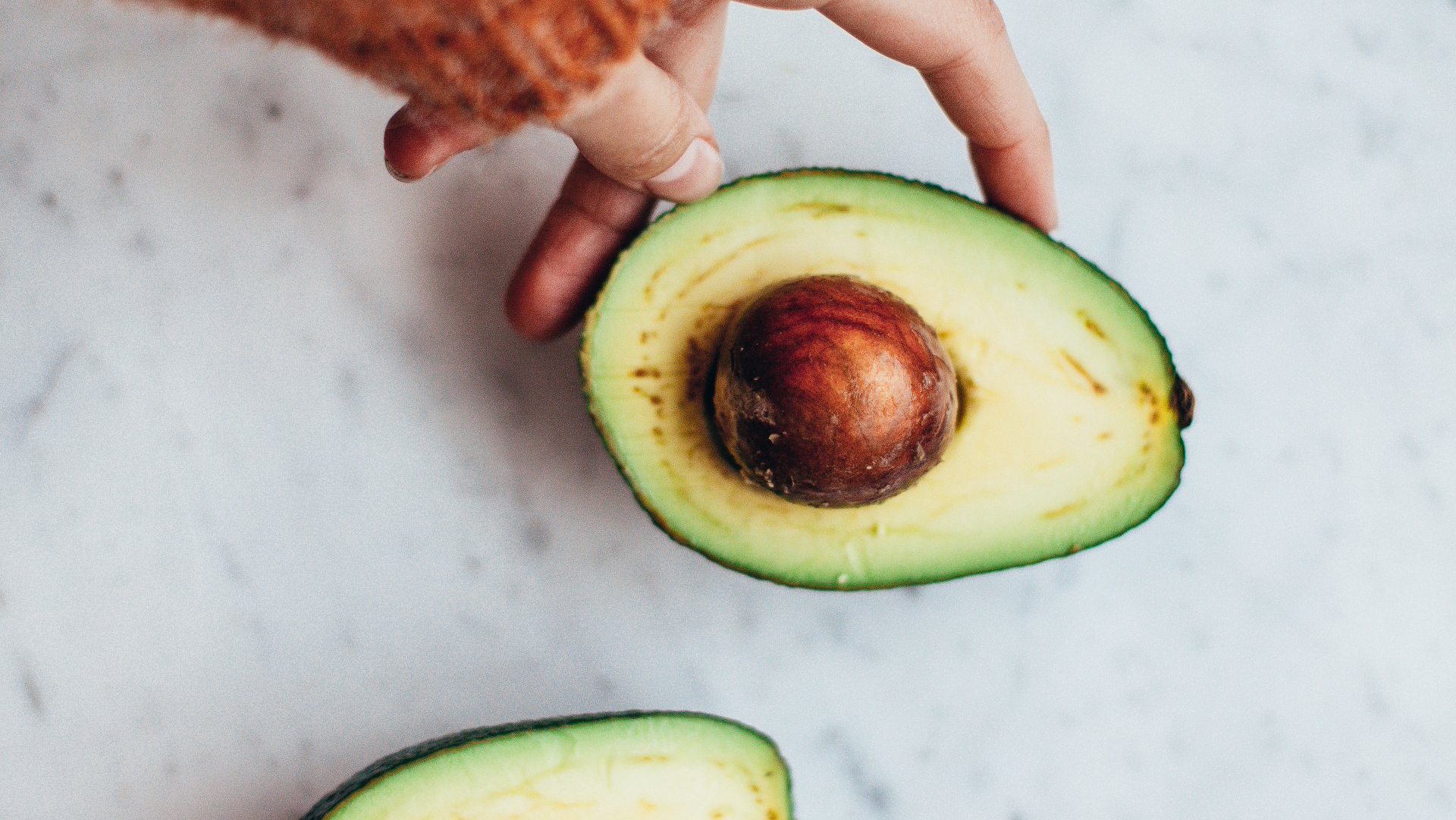
Rosie's top tips for a healthy intake of fat
If you currently rely on animal products and/or more processed food items, switching to plant sources of fat from whole foods will make a big difference to your health. Here are my top tips for getting healthier sources of fat in your diet:
- if you use traditional butter made from animal fat, switch to an olive oil or olive oil spread
- switch your biscuits or crisps (vegan or not!) for a handful of nuts or seeds with dried or fresh fruit
- switch your minced beef for lentils in your Bolognese or chicken for chickpeas in your curry and top with some avocado or cashews
- avoid using coconut oil every time you cook. Although it is a great ingredient in many dishes for texture or flavour, particularly in vegan desserts, it is one of our plant sources of saturated fat, so enjoy occasionally instead of everyday
Whilst you're here, I'd like to invite you my
Free 60 Minute Live Masterclass
The 3 Secrets to Banish Cravings and Lose Weight on a Plant-Based Diet
With Expert UK Dietitian Rosie Martin
May 14th 2024 - 11am and 8pm
Rosie is a plant-based registered dietitian, founder of Rosemary Nutrition & Dietetics, and works both in the NHS and as a freelance dietitian.
You can contact her with any queries via Rosemary Nutrition & Dietetics on rosie@rosemarynutrition.co.uk or follow her on Instagram at @plantdietitianrosie
